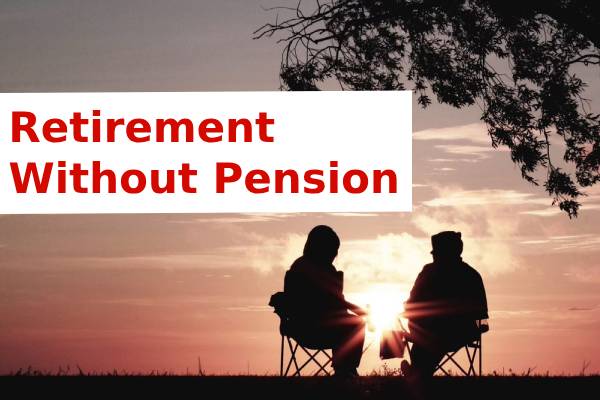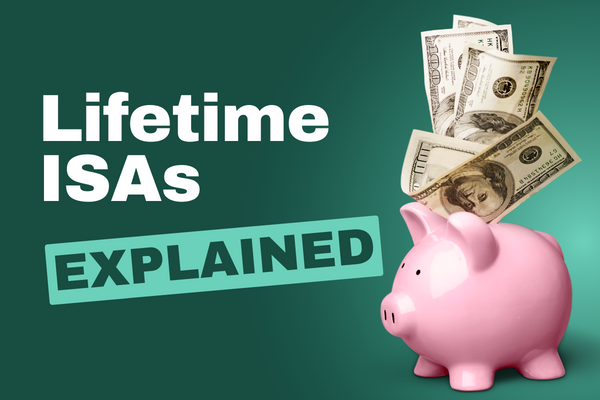Retirement Without a Pension: Options and Strategies

For many individuals, the absence of a traditional pension plan can be a daunting prospect as they approach retirement.
However, the lack of a pension does not spell financial insecurity. With careful planning, strategic investments, and a proactive approach, it is possible to secure a comfortable and stable retirement.
Assessing Your Financial Situation
Conducting a Financial Audit
The first step in planning for retirement without a pension is to conduct a thorough financial audit. This involves:
- Evaluating Current Savings: Assess your savings, including cash, investments, and any other assets.
- Understanding Expenses: Track your current expenses and project how they might change in retirement.
- Identifying Liabilities: List any outstanding debts or financial obligations.
Setting Retirement Goals
Determine your retirement goals by considering factors such as:
- Desired Lifestyle: Decide the kind of lifestyle you want to maintain, including travel, hobbies, and healthcare needs.
- Retirement Age: Choose an age at which you plan to retire, keeping in mind life expectancy and health considerations.
- Income Needs: Estimate the income you will need to cover your expenses and support your desired lifestyle.
Building Retirement Savings
Individual Savings Accounts (ISAs)
ISAs offer a tax-efficient way to save for retirement. There are several types of ISAs to consider:
- Cash ISAs: These are similar to regular savings accounts but with tax-free interest.
- Stocks and Shares ISAs: These allow you to invest in a range of assets, such as stocks and bonds, with potential for higher returns.
- Lifetime ISAs (LISAs): Designed for individuals under 40, LISAs provide government bonuses on contributions, making them a valuable tool for retirement savings.
Personal Pensions
Even without an employer-sponsored pension, you can still contribute to a personal pension plan:
- Self-Invested Personal Pensions (SIPPs): These offer flexibility in investment choices, allowing you to manage your retirement funds actively.
- Stakeholder Pensions: These are low-cost, flexible pension plans suitable for those with modest incomes.
Workplace Pension Schemes
If you are employed, check if your employer offers a workplace pension scheme. Auto-enrolment requires employers to enroll eligible employees into a pension scheme and make contributions. Opting into such schemes can provide valuable additional savings.
Diversifying Income Sources
Investment Strategies
Building a diversified investment portfolio is crucial for long-term financial stability. Consider the following strategies:
- Stocks and Bonds: A balanced mix of stocks and bonds can provide growth and income.
- Real Estate: Investing in property can offer rental income and potential appreciation.
- Mutual Funds and ETFs: These pooled investment vehicles provide diversification and professional management.
Generating Passive Income
Creating passive income streams can supplement your retirement savings:
- Dividend-Paying Stocks: Invest in companies that pay regular dividends.
- Rental Properties: Purchase properties to generate rental income.
- Online Businesses: Develop online ventures, such as blogs or e-commerce stores, that can generate ongoing income.
Part-Time Work and Freelancing
Continuing to work part-time or freelancing can provide additional income and keep you engaged:
- Consulting: Leverage your professional experience to offer consulting services.
- Gig Economy: Participate in gig economy opportunities, such as ride-sharing or freelance writing.
- Part-Time Jobs: Find part-time roles in areas of interest or expertise.
Managing Expenses and Liabilities
Budgeting and Expense Management
Creating a detailed budget and managing expenses is essential for financial stability:
- Reduce Discretionary Spending: Cut back on non-essential expenses.
- Debt Repayment: Prioritize paying off high-interest debt to reduce financial burdens.
- Living Arrangements: Consider downsizing or relocating to lower-cost areas.
Healthcare and Insurance
Healthcare costs can be a significant concern in retirement. Ensure you have adequate coverage:
- Health Insurance: Maintain comprehensive health insurance to cover medical expenses.
- Long-Term Care Insurance: Consider policies that cover long-term care needs, such as nursing home care.
Government Support and Benefits
State Pension
Even without a private pension, you may still be eligible for the UK State Pension:
- National Insurance Contributions: Ensure you have made sufficient National Insurance contributions to qualify for the full state pension.
- Deferring the State Pension: Delaying your state pension can increase the amount you receive when you do start claiming it.
Benefits and Assistance
Explore other government benefits and assistance programs:
- Pension Credit: Provides additional income for retirees with low pensions.
- Housing Benefit: Assists with housing costs for those on low incomes.
- Council Tax Reduction: Offers reduced council tax for eligible individuals.
While not having a traditional pension may seem challenging, numerous strategies and options are available to secure a comfortable retirement.
By assessing your financial situation, building diversified savings, generating additional income, and managing expenses effectively, you can create a robust financial plan for your retirement years. Proactive planning and informed decision-making are key to navigating retirement without a pension, ensuring financial stability and peace of mind in your later years.


